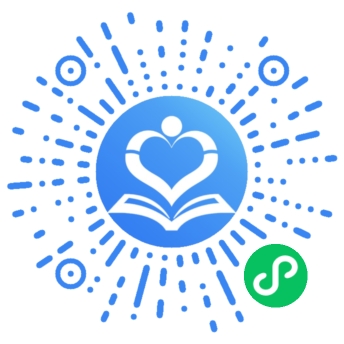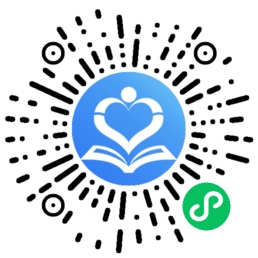中共党史专业介绍
中国共产党历史专业属于法学门类,政治学一级学科,该专业主要研究中国共产党的历史发展、理论政策与实践,探索中国共产党领导中国革命、建设、改革和党的建设的历史经验教训,揭示中国共产党执政规律、社会主义建设规律、人类社会发展规律。
英语单词分类 轻松记单词
dress
英[dres] 美[dres]
"formal attire"
"battle dress"
"she was refined in her choice of apparel"
"he always bought his clothes at the same store"
"fastidious about his dress"
"formal wear"
"a full-dress uniform"
"dress shoes"
"a dress dinner"
"a full-dress ceremony"
"we had to dress quickly"
"dress the patient"
"Can the child dress by herself?"
"Parents must feed and dress their child"
"dress the surface smooth"
"She dresses in the latest Paris fashion"
"he dressed up in a suit and tie"
"She likes to dress when going to the opera"
"dress a turkey"
"dress troops"
"dress the windows"
"dress the salads"
"dress the plants in the garden"
"dress the tanned skins"
"dress the victim's wounds"
"groom the dogs"
"dress the horses"
"dress my hair for the wedding"
1.连衣裙
Adress is a piece of clothing worn by a woman or girl. It covers her body and part of her legs.
dress的反义词
e.g. She was wearing a blackdress.
她穿一条黑色连衣裙。
2.衣服
You can refer to clothes worn by men or women asdress .
e.g. He's usually smart in hisdress.
他通常穿得很精神。
e.g. ...hundreds of Cambodians in traditionaldress.
数百名身着传统服装的柬埔寨人
3.穿衣
When youdress ordress yourself, you put on clothes.
e.g. He told Sarah to wait while he dressed...
他让萨拉等他穿好衣服。
e.g. Sue had dressed herself neatly for work.
休穿戴整洁地上班去了。
4.给…穿衣服
If youdress someone, for example a child, you put clothes on them.
e.g. She bathed her and dressed her in clean clothes.
她给她洗澡并穿上干净的衣服。
5.穿着;打扮
If someonedresses in a particular way, they wear clothes of a particular style or colour.
e.g. He dresses in a way that lets everyone know he's got authority...
他的穿着打扮让大家都知道他已经掌权了。
e.g. She used todress in jeans.
她过去常穿牛仔裤。
6.穿礼服
If youdress for something, you put on special clothes for it.
e.g. We don'tdress for dinner here.
我们这儿赴宴不穿礼服。
7.清洗,包扎,敷裹(伤口)
When someonedresses a wound, they clean it and cover it.
dress的翻译
e.g. The poor child never cried or protested when I was dressing her wounds.
我给这个可怜的孩子包扎伤口时,她不哭也不闹。
8.调制,加作料于(色拉)
If youdress a salad, you cover it with a mixture of oil, vinegar, and herbs or flavourings.
e.g. Scatter the tomato over, thendress the salad.
把西红柿散放在上面,然后给色拉加调味汁。
e.g. ...a bowl of dressed salad.
一碗已调制好的色拉
9.(在烹饪前)清洗,加工处理(鸡、鱼或肉类)
Todress meat, chicken, or fish means to prepare it for cooking by cleaning it and removing the parts that you cannot eat.
e.g. Her mother dressed the meat.
她母亲把肉洗好了。
e.g. ...dressed crab.
洗好的螃蟹
10. see also: dressing;dressed
相关词组:dress downdress up
1. 连衣裙:记忆:一个(a)弟弟(d)顺着地址找到了连衣裙(dress)的主人. 记忆:做(do)醋(cu)的人们(men)他(ta)们边看纪录片学日语(ry). 记忆:来(come)和弟弟(d)一(y)起看喜剧.
2. 洋裝:鲜红的洋装(dress) 鲜红的皮靴(Heel)鲜红的口红(Rouge) 鲜红的蔷薇(Rose)你那原本是白色的衣服(Shirt) 现在染上鲜艳的深红(Scarlet)你那原本是白色的衣服(Shirt) 现在────终至颓废(Decadence)的幻想 持续编织背德的罗曼史(Romance)老旧的金币(coin) 被紧握著 挣扎著爬行的同时 男人笑了将眼泪化为微笑慢慢靠近 握著<
She wears a beautiful evening dress.
她穿着一件漂亮的晚礼服。
She wore a diamond clip on her new dress.
她在新衣服上戴了一枚钻石别针。
They tried to dress him up as a'national hero'.
他们想把他打扮成一个“民族英雄”。
She always dresses in black.
她总穿着黑衣服。
She is parading the hall in her new dress.
她穿着新衣服招摇地在大厅里走。
Li Mei is wearing a yellow dress today.
李梅今天穿着一件黄色的连衣裙。
I dress my sister and wash her hands and face.
我给我妹妹穿衣服,洗脸洗手。
You should dress for cold weather today.
你今天应该穿防寒的衣服。
She always dressed entirely in black.
她一向全身黑色装束。
He was dressed as a woman (= he was wearing women's clothes) .
他打扮得像个女人。
Do they expect us to dress for dinner?
他们要求我们穿正式服装赴宴吗?
He dresses many of Hollywood's most famous young stars.
他为好莱坞许多最著名的年轻明星提供服装。
The nurse will dress that cut for you.
护士将为你包扎那个伤口。
to dress a salad (= put oil or vinegar , etc. on it)
给色拉加调味酱(放油、醋等)
to dress a chicken (= take out the parts you cannot eat)
给鸡去毛开膛
Get up and get dressed !
起床穿衣服了!
to dress well'/badly'/fashionably'/comfortably
穿得好 / 不好 / 时髦 / 舒适
She dressed the children in their best clothes.
她给孩子们穿上了最漂亮的衣服。
I dressed quickly.
我很快穿好了衣服。
He has no dress sense (= no idea of how to dress well) .
他毫无服装品味。
a wedding dress
婚纱
to wear casual'/formal dress
穿便服 / 正装
a long white dress
白色的长连衣裙
She bathed her and dressed her in clean clothes.
她给她洗澡并穿上干净的衣服。
He dresses in a way that lets everyone know he's got authority...
他的穿着打扮让大家都知道他已经掌权了。
She used to dress in jeans.
她过去常穿牛仔裤。
We don't dress for dinner here.
我们这儿赴宴不穿礼服。
The poor child never cried or protested when I was dressing her wounds.
我给这个可怜的孩子包扎伤口时,她不哭也不闹。
Scatter the tomato over, then dress the salad.
把西红柿散放在上面,然后给色拉加调味汁。
...a bowl of dressed salad.
一碗已调制好的色拉
Her mother dressed the meat.
她母亲把肉洗好了。
...dressed crab.
洗好的螃蟹
She was wearing a black dress.
她穿一条黑色连衣裙。
He's usually smart in his dress.
他通常穿得很精神。
...hundreds of Cambodians in traditional dress.
数百名身着传统服装的柬埔寨人
He told Sarah to wait while he dressed...
他让萨拉等他穿好衣服。
Sue had dressed herself neatly for work.
休穿戴整洁地上班去了。
She dressed down to visit her poor relatives, so as not to offend them by a show of her wealth.
她访问穷亲戚时穿得比较俭朴,以免因显示阔气而伤害他们的感情。
dress sb ⇔ downThe father dressed his boy down for his carelessness.
父亲斥责孩子粗心大意。
The manager dressed the worker down for his carelessness.
经理责备这个工人粗心。
For not obeying discipline, the soldier was dressed down by the officer.
因为没有遵守纪律,那个士兵被军官狠狠地训了一顿。
The office boy was dressed down for his insolence.
办公室的勤杂员因无礼被训斥了一通。
Try to dress appropriately for each occasion.
尽量穿得适合时宜。
He dressed for dinner.
他身着礼服赴宴会去了。
Tell the guests not to dress for dinner.
告诉客人不必为赴宴会而穿礼服。
How should we dress for the party?
我们穿什么衣服参加这次聚会才好呢?
Do I need to dress for the theatre?
我需要穿礼服去戏院看戏吗?
If you're going to climb mountains, you'd better take advice on how to dress for it.
如果要去爬山,你最好问问人家爬山穿什么衣服好。
We are going to dress the baby in new clothes and take her to the park.
我们要给小孩子穿上新衣服,带她到公园去。
He's dressed in silk.
他穿着绸料衣服。
Jane is always dressed in red.
珍妮总穿红色衣服。
We must be dressed in uniform at school.
在学校我们必须穿制服。
They were dressed in their Sunday best.
他们穿着最好的衣裳。
The young man was dressed in a white satin clothes and wore a hat covered with an ostrich plume.
这个小伙子身穿白色绸子服,头戴毡帽,帽子上插了一根鸵鸟的羽毛。
The street was dressed out in flags when the victory was won.
取得胜利后,街上挂满了旗帜。
She often dresses up and goes out at night.
她晚上经常穿上盛装出去。
They dressed up for the occasion.
为了参加这个活动,他们都穿上盛装。
They all dressed up to take part in the New Year's party.
他们都穿上盛装,去参加除夕晚会。
Are we going to dress up for the wedding, or is it informal?
我们参加婚礼是穿戴正式些还是不拘礼仪?
She dressed up in Miao clothes.
她穿上了苗族服装。
dress sb/sth ⇔ upThey dressed the children up.
他们把孩子打扮得漂漂亮亮。
The mother dressed her daughter up like a princess.
那位母亲把她女儿打扮得像个公主。
She dressed her children up for the festival.
节日里她给孩子们穿上最好最漂亮的衣服。
The girl has dressed up her hair.
这位姑娘把头发梳理好了。
We shall dress the room up for Christmas.
我们要收拾房屋过圣诞节。
He dressed up his statement to deceive the voters.
他用花言巧语来欺骗选民。
She hated being dressed up.
她讨厌打扮自己。
dress sb/sth ⇔ up as n\u002eTom dressed up the story and made it seem twice as interesting as it was.
汤姆把故事讲得有声有色,趣味倍增。
dress oneself/sb ⇔ up as n\u002eShe dressed herself up as a ghost.
她把自己打扮成鬼。
The children dressed themselves up as pirates.
孩子们打扮成海盗。
She was dressed up as a lady of high society.
她把自己打扮成一位贵妇人。
dress upThe children enjoy dressing up in Mother's old clothes.
孩子们喜欢穿上妈妈旧时的衣服玩。
dress sb ⇔ updress up the men so that the general can see them.
将战士们排成一列,这样将军就能看到他们。
Your black silk frock will be quite dress enough.
出自:DickensThe dress I wore was..that of a sailor come ashore from some coaster.
出自:J. ConradHe'd lost his head-dress..and was wearing Western dress.
出自:J. RabanFashion, as opposed to mere dress, is..sprinkled with foreign terms.
出自:A. LurieThe dressed stones of the rampart.
出自:R. GravesShopping-(购物)
A:Thatdress is too expensive.
这衣服真贵。
B:But it’s so pretty.
但是很漂亮呀。
A:Yes, it is pretty, but it costs $200. What about this one? It’s almost the same, but it costs half as much.
是很漂亮,但要200美元噢。这个怎么样?款式几乎一样,但只要一半的价钱。
B:It’s not the same. It’s completely different.
这个不同,完全不同。
A:It’s just a little shorter.
只是短一些。
B:I really like this one.
我真的很喜欢这个。
A:Well, it’s your money. You can spend it however you want.
好吧,反正是你自己的钱。想怎么花就怎么花。
B:Do you really think it’s pretty?
你真的觉得这个漂亮。
dress什么意思
A:Yeah. It’s pretty.
是的,很漂亮。
服饰
A:What do you think about thisdress, Geoff?
杰夫,你觉得这条连衣裙怎么样?
B:I like the pattern, but I’m not sure I like the red on you.
我喜欢它的样式,但不知道你穿红色是不是好看。
A:Do you think it fits?
你认为合适吗?
B:Very nicely.
非常合适。
A:Would you go to check if they have the samedress in blue, then? You can just bring it back to the fitting room.
那么,你去看看有没有同一款式的蓝色的裙子。你把它带到试衣间来。
B:Sure.
好。
dress的意思
A:One more thing, what do you think about these pants? Do you think they would need hemming?
还有,这条裤子你觉得怎么样啊?你认为需要缝边吗?
B:No, I think they’re the right length.
不用,长度刚好。
A:Do you like the pattern? I just can’t decide between the plain or the striped ones. What do you think?
你喜欢这图案吗?我决定不了是选一条素色的还是一条带花纹的,你觉得呢?
dress的反义词
B:I like plain clothes myself, but they both look fine on you. Which ones do you like more?
我自己喜欢素色的衣服,但是俩条都很适合你。你更喜欢哪一条?
A:I think I’ll go for the striped pair of pants, then.
我想还是要那条带条纹的吧。
B:Good decision. I’ll just go and look for thatdress then.
好主意。我一会儿去找那条裙子。
A:Thanks dear.
谢谢你,亲爱的。
Before Leaving Home-(离家前)
A:Susan, good evening. Why are you so dressed up??
苏珊,晚上好。你怎么打扮成这样?
B:I am on my way out to a New Year’s banquet. How do I look? Is my make-up OK?
我要去参加一个新年宴会。我看上去怎么样?我的妆可以吗?
dress
A:You look great. Your make-up is perfect.
你看上漂亮极了。你的妆也是无可挑剔的。
B:Do you think I should wear a differentdress?
你觉得我要换件礼服吗?
dress的翻译
A:No, the one you have on looks fabulous, especially with your hair like that.
不用,你穿这件衣服非常漂亮,尤其是配着你的发型。
B:Thanks for saying. Do you have any ideas which necklace I should wear?
谢谢你这么说。你觉得我应该戴哪条项链呢?
A:With thatdress I’d say your white diamond necklace would look perfect.
我不得不说这条白钻项链配你的衣服堪称完美
B:Thanks for helping out?. Now that I’m ready, what are you doing tonight?
谢谢你的帮忙。我已经准备好了,你今天晚上干什么?
A:Not much, just a house party? with some friends.
没什么。只是在家里和朋友们聚一聚。
dress
B:Sounds fun. Anyone I know?
听起来很有趣。有我认识的人吗?
A:Yeah, most of the people are from our office.
有,大多数人是我的同事。
B:Sounds Like I'm missing out on? a good time. Oh, well, there is always next year.
听起来我要错过一段开心的时刻了。算了,还有明年呢。
A:I’m sure you’ll have fun no matter where you go. Remember to take your bag.
我保证无论你去哪里都会玩得很开心的。记得带上你的包。
She is dressing.She is dressing her baby.
前两句都是对的,而最后一句是错的,因dress已包含衣服,后面就不用再加表示衣服的词了。
He doesn't seem to care much about dress.
他看起来不怎么注重穿着。
He wears a blue dress.
这个句子是错误的,不可用。
I didn't recognise him because he was dressed in a dark suit.
他穿着黑色的西装时,我没有认出他来。
The children dressed themselves up as angels to attend the ceremony.
孩子们把自己打扮成天使去参加典礼。
误 My father doesn't care much about dresses.
正 My father doesn't care much about dress.
析 dress泛指“衣着”时是不可数名词。
她老公穿着一件新衣服。误 Her husband was wearing a new dress.
正 Her husband was wearing a new coat.
析 dress用作可数名词时指妇女和儿童穿的服装,而本句的主语为男士,故可改为coat。
误 I can dress my clothes in no time.
正 I can dress in no time.
正 I can dress myself in no time.
正 I can put on my clothes in no time.
析 dress指“穿衣服”时,它的宾语只可以是人,不可以是物。
这小女孩穿一身红衣服。误 The little girl dressed in red.
误 The little girl dressed with red.
正 The little girl dressed herself in red.
正 The little girl was dressed in red.
析 dress表示“穿(某种)衣服”,只能用作及物动词,不可用作不及物动词。另外,介词不可换为with。
她今天早晨穿得很体面。误 She dresses well this morning.
正 She is well dressed this morning.
析 dress可表示“穿着”的状态,如果要表示一次穿衣情况,则要用被动语态。
On my ninth birthday, my aunt gave me a nicedress as a present.
在我九岁生日那天,我阿姨给了我一件漂亮的衣服作为礼物。
2020吉林省卷
Wedressed up in costumes, drew pictures, and sang at the top of our lungs.
我们穿着戏服,画画,放声歌唱。
2020河南省卷
It’s only since the 1940s that people have starteddressing girls in pink-before that it was a color for boys.
直到20世纪40年代,人们才开始给女孩穿粉色——在此之前,粉色是男孩的颜色。
2019杭州市卷
The difference between today's workplace and the "dress for success" era is that the range of options is so much broader.
当今职场与“穿出成功”时代的区别是选择的范围更广了。
2016英语一
In some settings, red sneakers ordress T-shirts can convey status; in others not so much.
在某些设定中,穿红色运动鞋或礼服t恤可以传达某种状态。
2016英语一
What's more, both boys and girls wore what were thought of as gender-neutraldresses.
此外,男孩和女孩都穿被认为是不分性别的衣服。
2012英语二
四川高考志愿填报方式:1、进入页面;2、修改密码;3、填报须知;4、查看个人基本信息;5、志愿类别选择;6、填写志愿和修改志愿;7、填写或修改志愿结束后,单击页面底部的[保存并提交]按钮,则所填写的志愿数据将得到保存,保存即表示该批次志愿已经提交。
高考成绩一般都会在考后15天左右公布,不过不同省份查询时间有所差别,具体以各省份发布时间为准。并且全国各省份高考成绩公布时间有所不同,不全在同一天,但绝大部分省市都集中在6月24日、6月25日两天公布高考成绩,有些省份会更早一点。
中国共产党历史专业属于法学门类,政治学一级学科,该专业主要研究中国共产党的历史发展、理论政策与实践,探索中国共产党领导中国革命、建设、改革和党的建设的历史经验教训,揭示中国共产党执政规律、社会主义建设规律、人类社会发展规律。
小学教育专业属于教育学门类、教育学一级学科,是我国教师教育体系的重要组成部分。小学教育专业坚持学高为师、身正为范。其主要培养德、智、体、美、劳全面发展,具备专业化的小学教师素养,能在小学及相关行业从事教育、教学和管理等方面工作的复合型人才。
钢琴伴奏作为一门中国普通高等学校的专科专业,属于文化艺术大类中的表演艺术类,修业年限为三年。该专业的目的是培养了解钢琴伴奏的基本理论知识和方法,具备较好的音乐创造能力,从事钢琴伴奏、艺术指导、钢琴演奏、教学辅导等工作的高素质技术技能人才。
影视多媒体技术专业是一门专科专业,属于新闻传播大类中的广播影视类。开设该专业的目的是培养全面发展,具有良好职业道德和人文素养,掌握影视多媒体技术基本知识和技能,具备影视后期制作、影视包装设计能力,从事影视编辑的高素质技术技能人才。
虚拟现实技术应用是一门互联网专业,属于电子与信息大类中的计算机类,基本修业年限为三年。专业主要研究仿真技术与三维计算机图形技术等方面基本知识和技能,具备虚拟现实软硬件平台设备搭建,从事虚拟现实、开发、调试等工作的高素质技术技能人才。
更多内容
关注微信小程序
学路英语小程序
 微信扫一扫,加入小程序
微信扫一扫,加入小程序
学路学习小程序
 微信扫一扫,加入小程序
微信扫一扫,加入小程序
学路高考小程序
 微信扫一扫,加入小程序
微信扫一扫,加入小程序
学路学习APP
 扫一扫,下载app
扫一扫,下载app